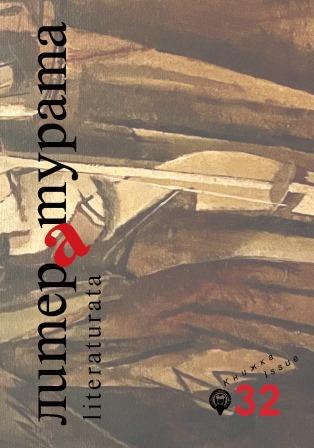Фолклорни куклени представления на улицата: Петрушка и неговите европейски събратя
The Folkloric Puppet Shows on the Street: Petrushka and His European Counterparts
Author(s): Iliana Chekova-DimitrovaSubject(s): Theatre, Dance, Performing Arts, Language and Literature Studies, Fine Arts / Performing Arts, Theoretical Linguistics, Studies of Literature, Philology, Translation Studies
Published by: Софийски университет »Св. Климент Охридски«
Keywords: the Petrushka puppet and other similar puppets; Bulgarian translation of the Russian folk comedy “Petrushka”
Summary/Abstract: The puppet street theater had a vivid presence in the life of European cities from the 19th to the early 20th century. In Germany, Austria, and Switzerland during the 18th century, the comic character Kasper was well-known. Puppet play was also widespread in Slavic folklore traditions. Some German and Austro-Hungarian travelers wrote about puppet performances and left drawings of what they saw in Russian (Adam Olearius in the 17th century) and Bulgarian lands (Felix Kanitz in the 19th century). The paintings of numerous German and Russian artists provide an idea of street theater during festive and everyday occasions. This article traces the development of puppet theater among the Eastern Slavs – from the skits of the “skomorokhs,” through the lubok literature of the 18th century (folk picture books), to various forms of street theater involving puppets during Christmas and Easter celebrations in cities from the 19th to the early 20th century – “vertep”, “rayok”, “balagan”, “Petrushka”, and others. The influence of Italian, French, and German traditions on the puppet theater of the Eastern Slavs is noted. In the performances of Russian theaters of the 21st century, the skits with Petrushka are filled with new content. A Bulgarian translation of the skits from the folk comedy “Petrushka” is offered to the readers. In the Bulgarian folklore tradition, various forms of puppet theater are also known, including the “box theater”, puppets made from towels, marionettes on a board, and stick puppets. Ritual masks of the “kukeri” are adorned with puppets in bridal dresses, which can still be observed today at the masquerade carnival games in Pernik. Today’s carnival traditions in Germany, especially in Cologne, preserve the old practices of street merrymaking but also develop the masquerade tradition in the direction of the contemporary and the topical.
Journal: Литературата
- Issue Year: XVIII/2024
- Issue No: 32
- Page Range: 228-253
- Page Count: 26
- Language: Bulgarian
- Content File-PDF

